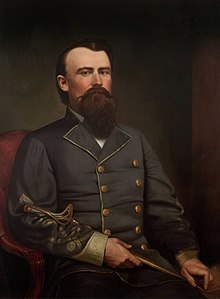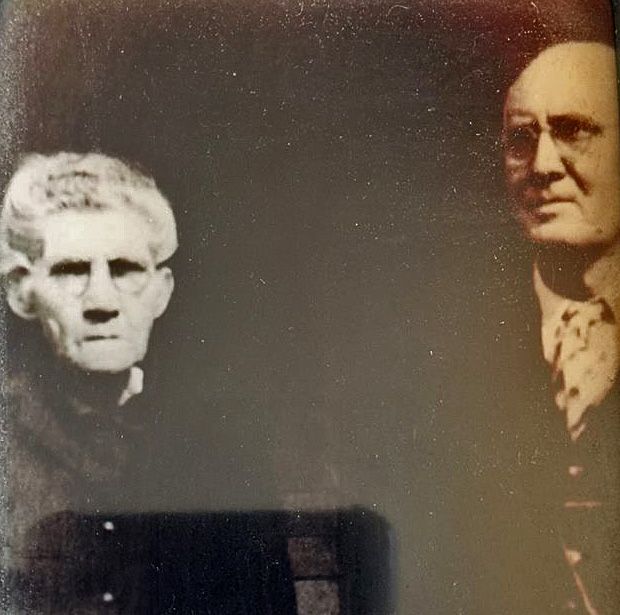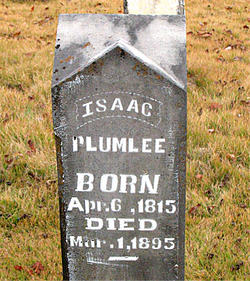Dr. Curtis Varnell
The date was September 27. 1863 and the country was in the middle of the great Civil War. Flags and guidons were flying as Joseph Shelby’s Iron Brigade travelled up the old military road. Eight-hundred cavalry, twelve wagons, and two cannon would have resulted in a column stretched a mile or more. Passing through the sparsely settled but politically divided farmland of what is now Logan County, the Confederates encountered warm welcome on the one hand and abject hostility on the other. Occasionally Union sympathizers took the opportunity to fire on the column from the surrounding brush and forests. To prevent these attacks, Shelby assigned Captain Tuck Thorpe the duty of preceding the column and clearing the way.

Nearing Haguewood Prairie, Thorpe and his group unexpectedly ran upon an encamped group of the Arkansas (union) first infantry. The First Arkansas Infantry were composed of locals, many of whom had visiting family members with them. Surprised by the advance scouts, the men quickly fell back into the trees along Haguewood creek and formed a line of defense. Gunfire erupted as the two sides engaged. Hearing sounds of battle, Shelby advanced rapidly to the aide of his scouts. Outnumbered, but in a good defensive location, the eighty men of the union army put up a good fight. A two-hour skirmish ensued as the two sides exchanged gunfire across the prairie. Shelby, tiring of the battle, ordered an all-out charge on either flank. His colorful official report states, “the simultaneous charge scattered them like chaff and our rough riders rode them down like stubble to the lava tide.”
There were casualties on both sides and Shelby took a number of captives. Among the captured were two women and three little girls. While the firing continued, they all huddled behind a huge white oak tree and prayed. When their father was brought in bleeding and pale, the young children crowded around him, distraught and crying. “Father, father please don’t die,” they wailed in distress. “Your bleeding so bad and you are so pale and sick.” The man’s wife set dejected and wringing her hands in distress, her eyes filled with tears.
Confederate troopers gathered around, moved by the pathetic scene played out before them. Some of the men, no doubt thinking of their own loved ones left behind, turned from the scene with tears. Some of the men began to pull money from their own possessions and to lay it before the small family. Shelby collected at least twelve months’ provisions for the family and then provided them with overcoats and blankets. Stating he was sorry that their dad was hurt, he took a leather purse of gold coin from his pocket and pressed it into the hands of the woman.

Research indicates that the wounded man was Isaac Plumley, a 48-year-old farmer that had enlisted in Fayetteville in March of 1863. Isaac had a large family, eventually a total of at least 11 kids with his first wife. His wife Sirena and the younger children Cerenta, Sarah, and Narcissa would fit the description from official records. Official records show that Isaac was severely wounded in the lower leg and ankle and spent months in the military hospital. He was eventually discharged in Fort Smith, AR in Nov. of 1864. It is said that the money given them was equal to several year’s wage. After the warm, Plumley filed for and was awarded a pension of 12 dollars monthly. The 1870 census shows that his wife Sirena had died and that Isaac had remarried to his sister-in-law who had lost her husband. His new wife had four children and they proceeded to have seven more children together. No doubt, with 22 children between them, they needed every accumulated penny to survive! He died in March of 1897 and is buried in Long Cemetery, Boone County, Arkansas.
Shelby continued on his raid into Missouri. During the raid, his troops killed or wounded 600 Federal troops, captured thousands of weapons, destroyed two forts, destroyed miles of railroad and telegraph lines, while preventing more than 100,000 Missouri and Arkansas troops from assisting in the Tennessee campaign. Shelby and his men conducted one of the most successful campaigns in the west, yet found time for mercy and compassion in the midst of war.







